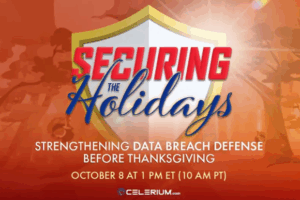October 2, 2025

Webinar: Using Actionable Data to Optimize Staffing and Maximize ROI, October 7
Labor costs remain the largest expense for hospitals, yet many teams still make staffing decisions without timely, reliable data. Premium pay, overtime and agency use surge when leaders can’t see demand signals in real time or match the right clinician to the right shift.
This webinar focuses on how to turn workforce data into decisions that cut labor waste without sacrificing care quality. Expect a practical discussion on what to measure, how to interpret it, and how to act quickly at the unit and enterprise level.
This session will outline a data-to-decision framework for staffing that improves utilization, strengthens governance for contingent labor and supports ROI targets.
Learnings Include:
- The key data points that drive cost-effective staffing decisions,
- How to use real-time insights to improve provider utilization and workforce planning,
- Strategies to align contingent labor management with organizational goals and ROI targets, and
- How to build dashboards leaders trust to monitor spend, productivity and savings.
Cost: Free
When: Tuesday, October 7, 11:00 a.m. – 12:00 p.m.
Click Here to Register



